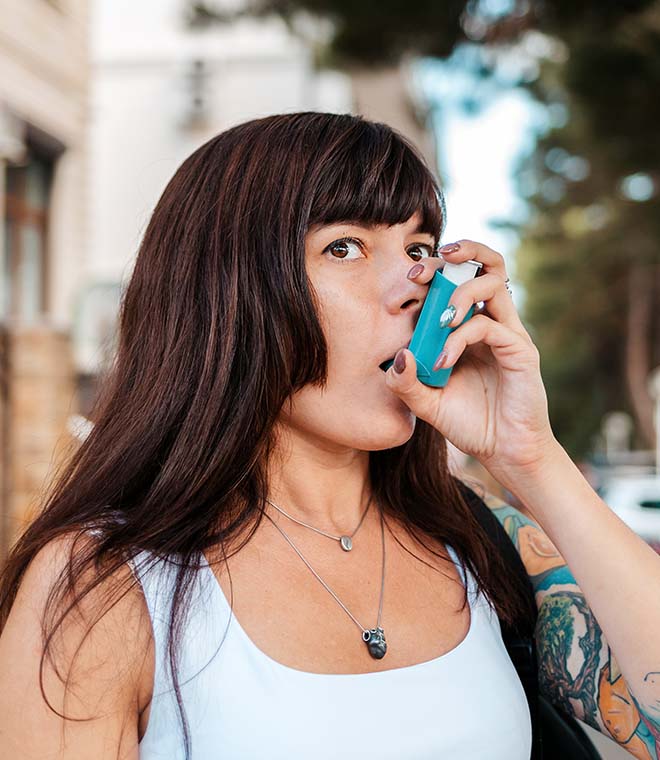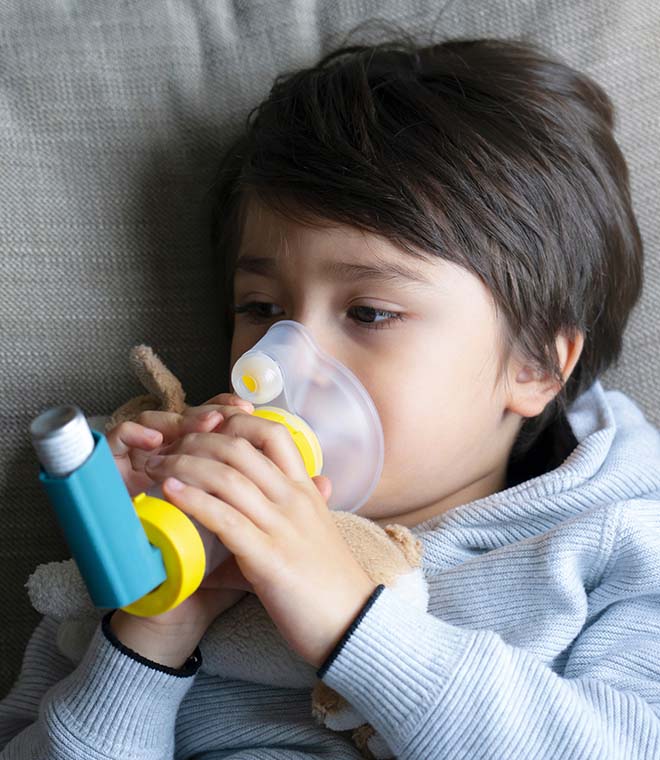Health
Symptoms of asthma
By Nancy Kupka, PhD, RN Jan 04, 2021 • 3 min
Asthma is a lung disease that affects people of all ages.
Signs and symptoms include repeated episodes of wheezing, breathlessness, chest tightness and nighttime or early morning coughing. Asthma attack symptoms are frightening, as it feels as if someone is sitting on your chest or you are unable to breathe. Effective management of asthma consists of developing a plan, which includes avoiding allergens that may trigger an attack, recognizing an asthma attack early on and using medications daily or as needed during an asthma attack.
Asthma in children
Asthma symptoms in kids, including toddlers and even older children, vary greatly and can be confused with those of other respiratory diseases. That fact coupled with the inability of younger children to describe their symptoms can make it difficult to diagnose asthma in these age groups.
Some children with asthma show the same symptoms as adults with asthma—coughing, wheezing and shortness of breath. However, in other children, chronic cough, easily fatiguing or, in very young children, feeding problems may be the only symptom. In addition, many children can go symptom-free for long periods of time before having an asthma attack.
Asthma symptoms or flare-ups are most commonly caused by allergies. Exposure to dust mites, animal dander, plant pollen and other environmental allergens can trigger an asthma attack. Asthma symptoms from allergies are not different than those of exercise-induced asthma or triggers such as cold air or pollution.
When to make an appointment
If you or your child has one or more of these common signs and symptoms, make an appointment with a provider:
- Constant coughing or coughing made worse when the individual has a respiratory infection, is asleep, is in cold air or after exercise
- A wheezing or whistling sound you can hear when the person exhales
- Shortness of breath or rapid breathing
- Chest tightness or discomfort
- Fatigue, which may cause young children to stop playing, or they may need to take frequent breaks while playing
- In infants or toddlers, problems with eating or grunting during feeding
Although chronic, asthma can be effectively controlled in both adults and children. After receiving an accurate diagnosis, individuals with asthma can fully participate in most activities by avoiding triggers, following treatment with maintenance medications or rescue inhalers and having an action plan for asthma attacks. Make sure to work with a provider to develop a plan to meet individual needs. This plan should be evaluated periodically, especially as young children grow.
Published January 2021.



